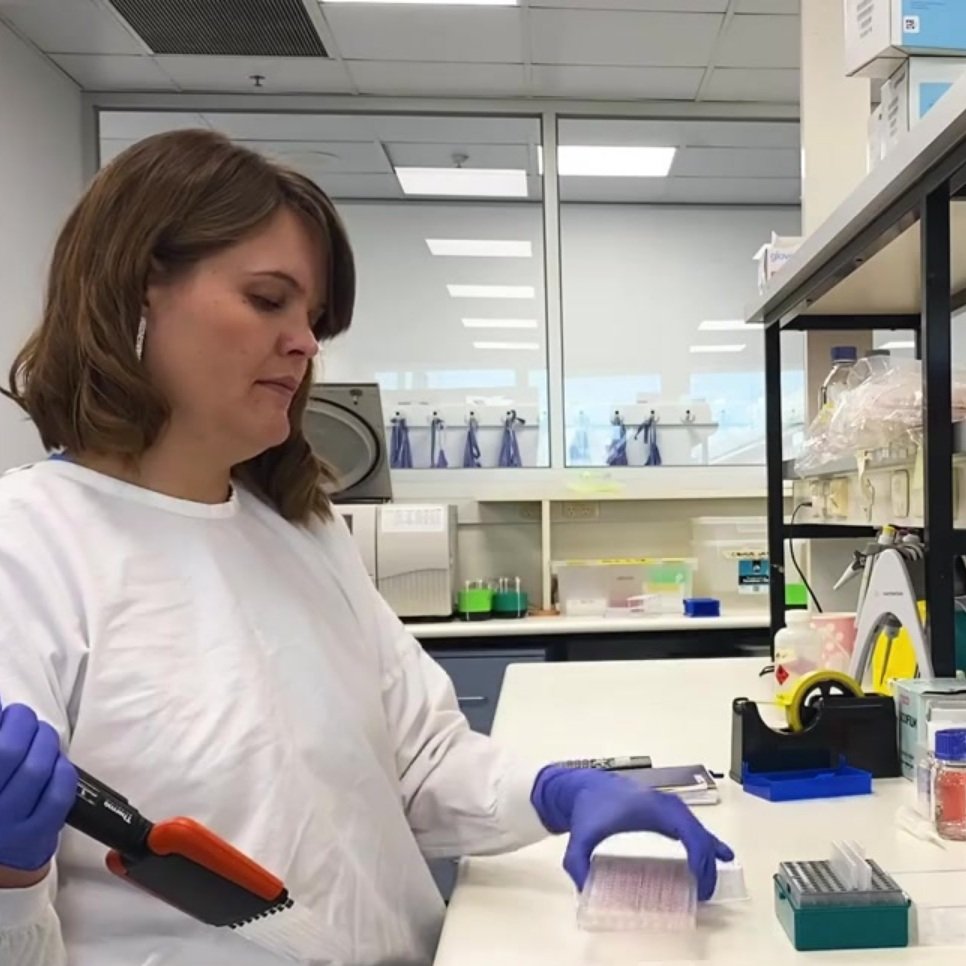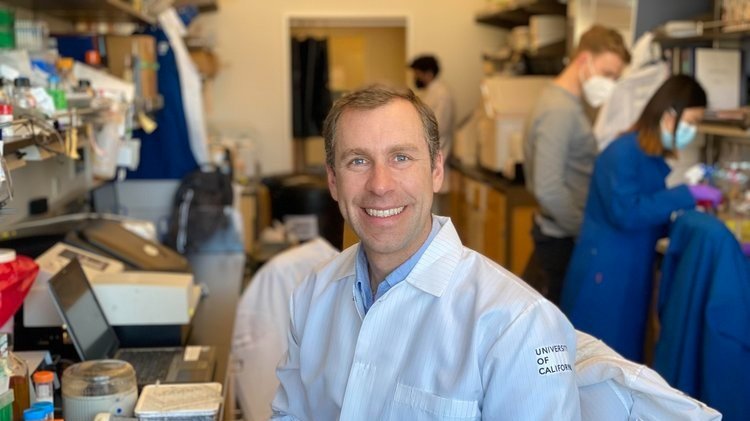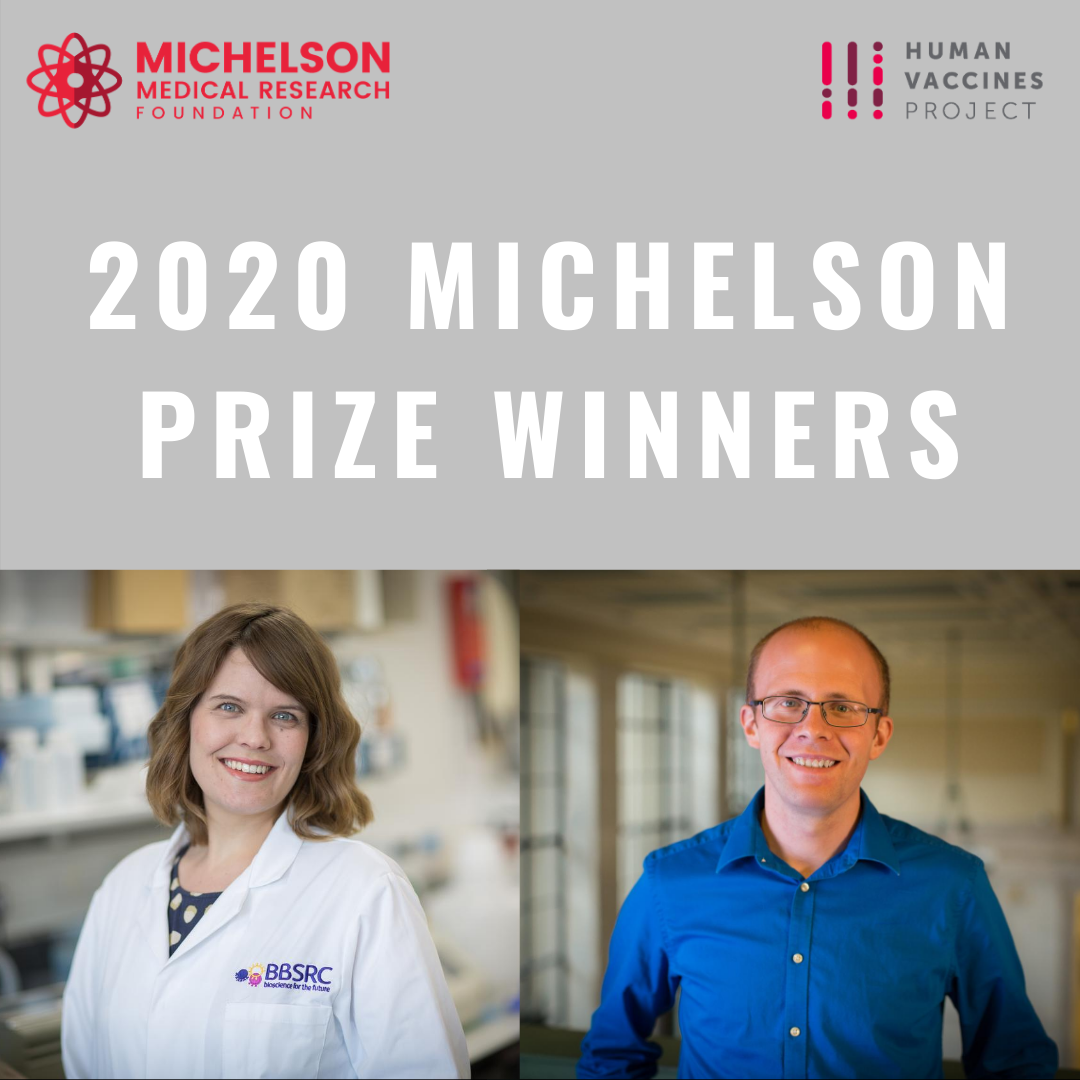Latest Videos

Romain Guyon Explores Single-Dose Rabies Vaccines
Guyon's work has the potential to improve immunization rates against rabies and reduce the logistical and cost burdens associated with multiple vaccine doses.

Apply to the Michelson Prizes: Next Generation Grants
The 2023 Michelson Prizes application process will open April 3rd for researchers under 35 years old who are working on human immunology and vaccine development, with an aim to tackle roadblocks in human vaccine development and expand our understanding of key immune processes.

The Michelson Philanthropies & Science Prize for Immunology
Dr. Gary Michelson, Founder and Co-Chair Michelson Philanthropies, established the Michelson Philanthropies & Science Magazine Prize for Immunology to support early-career researchers who perform transformative research in human immunology with trans-disease applications to accelerate vaccine and immunotherapy discovery.

Michelson Philanthropies SciTalks: Progress in Vaccine Development for Infectious Diseases
Michelson Philanthropies celebrated winners of its 2021 Michelson Prizes: Next Generation Grants and Michelson Philanthropies and Science Prize for Immunology during a Keystone Symposia meeting: Progress in Vaccine Development for Infectious Diseases conference.

Dr. Rong Ma Views Personalized Cancer Research & Rock Climbing as Puzzles She Needs to Solve
Dr. Rong Ma’s research provides a pathway for using the mechanical forces involved in the human immune system to identify and predict immune responses.

ePanel Keystone Symposia: Charting the Future of Immunology and Immunotherapy
This Keystone Symposia ePanel celebrates the inaugural winners of the Michelson Philanthropies & Science Prize for Immunology, an international prize that focuses on transformative research in human immunology.

Dr. Scott Biering, Immunology Prize Finalist: Flavivirus Protein as a Target for Vaccines
Dr. Scott Biering's (University of California, Berkeley,) research reveals how a conserved flavivirus protein holds potential as a target for versatile vaccines and therapies.

Dr. Lisa Wagar, Immunology Prize Finalist: Immune Responses to Viruses and Vaccines
Dr. Lisa Wagar's (University of California, Irvine) research deciphers the immune responses to viruses and vaccines using human tonsil organoids.

Dr. Paul Bastard, Immunology Prize Recipient: Why Do People Die from COVID?
Dr. Paul Bastard of the Laboratory of Human Genetics of Infectious Diseases, Institut Imagine, INSERM & University of Paris, and The Rockefeller University, New York, received the Michelson Philanthropies & Science Grand Prize for his outstanding essay “Why do people die from COVID-19?: Autoantibodies neutralizing type I interferons increase with age.”

2021 Michelson Prizes Human Immunome Project Award Ceremony
The Michelson Medical Research Foundation and the Human Immunome Project (formerly the Human Vaccines Project) celebrate the winners of the 2021 Michelson Prizes Human Immunome Project award for their innovative vaccine and immunology research.

Dr. Camila Consiglio Explores Differences in Human Immune Responses Between the Sexes to Develop More Targeted Vaccines
Dr. Camila Consiglio, Karolinska Institutet, offers a novel approach to understanding differences in human immune responses between sexes by studying a unique cohort of people: individuals undergoing sex-re-assignment therapy.

Dr. Nicholas Wu Takes on Lifelong Quest to Understand How the Immune System Responds to the Flu
Dr. Nicholas Wu’s research (University of Illinois, Urbana-Champaign) has the potential to shift the paradigm of antibody discovery and characterization. Dr. Wu attempts to interpret the complexity of the human antibody repertoire, by establishing a sequence-based approach for epitope prediction.

2020 Michelson Prizes: Next Generation Grants Award Ceremony
The Michelson Medical Research Foundation and Human Immunome Project hosted a special 2-hour ceremony with 2020 Michelson Prizes Winners, Dr. Danika Hill (Monash University) and Dr. Michael Birnbaum (MIT).

Dr. Michael Birnbaum, 2020 Michelson Prizes Human Immunome Project Recipient
Dr. Birnbaum, Assistant Professor, Department of Biological Engineering, MIT, received the 2020 Michelson Prize for Human Immunology and Vaccine Research for “Repertoire-Scale Determination of T Cell Recognition and Cross-Reactivity to HIV via pMHC Lentiviral Display.”

Dr. Danika Hill, 2020 Michelson Prizes Human Immunome Project Recipient
Dr. Danika Hill, Research Fellow, Monash University, Melbourne, Australia, received the Michelson Prize for Human Immunology and Vaccine Research 2020 for: “Exploiting T Follicular Helper Cells as an Innovative Tool to Discover Targets for Long-Lived Humoral Immunity.”

Dr. Avinash Das Sahu, 2019 Michelson Prizes Human Immunome Project Recipient
Dr. Avinash Das Sahu, Department of Data Sciences, Dana-Farber Cancer Institute, describes his research project titled “Identification of cancer drugs that boost immunotherapy response.”

Dr. Murad Mamedov, 2019 Michelson Prizes Human Immunome Project Recipient
Dr. Murad Mamedov, Postdoctoral Scholar, Microbiology and Immunology, School of Medicine, University of California, San Francisco, describes his research project titled “Mapping γδ T Cell Receptor Ligands.”

Dr. Kamal Mandal, 2019 Michelson Prizes Human Immunome Project Recipient
Dr. Kamal Mandal, University of California, San Francisco, describes his research project titled “‘Structural surfaceomics: an approach to identify cancer-specific cell surface protein conformations for immunotherapeutic targeting.”

Dr. Ansuman Satpathy, 2018 Michelson Prizes Human Immunome Project Recipient
Dr. Ansuman Satpathy, Assistant Professor, Department of Pathology, Stanford University School of Medicine, was awarded a 2018 Michelson Prize for Human Immunology and Vaccine Research for his work focused on combining disciplines of genomics and human immunology.

Dr. Laura Mackay, 2018 Michelson Prizes Human Immunome Project Recipient
Dr. Laura MacKay, Laboratory Head and Senior Lecturer, Peter Doherty Institute for Infection and Immunity, University of Melbourne, is studying a recently described subset of immune cells called tissue-resident memory T cells, which combat various viral infections and cancer.

